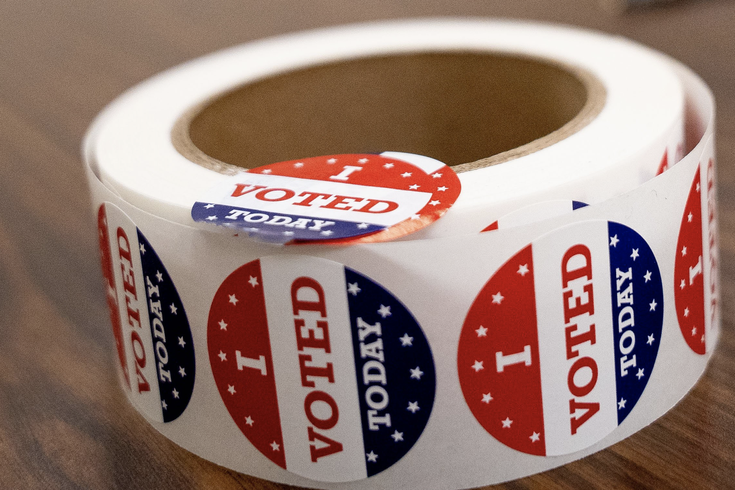
September 19, 2023
 Michael Candelori/For PhillyVoice
Michael Candelori/For PhillyVoice
Pennsylvania should allow independent voters to participate in the state's primary elections, the state's five most recent former governors say.
Pennsylvania should repeal its closed primary system and permit independent voters to take part in its primary elections, the state's five most recent former governors wrote in a letter sent to the state legislature.
The bipartisan group called on the General Asssembly to advance legislation that would open the primary elections to the state's 1.2 million independent voters. The letter was signed by Republicans Tom Ridge, Mark Schweiker and Tom Corbett, and Democrats Ed Rendell and Tom Wolf.
Pennsylvania is one of seven states with a closed primary system, which requires Republicans to participate in the GOP primaries and Democrats to participate in the Democratic primaries. Independent and third-party voters may not participate. Closed primary systems are designed to encourage strong party organizations.
Both major political parties stand to benefit by opening Pennsylvania's primary elections to independent voters, the governors argued, because this will allow independent voters to "try before you buy." They noted that both parties have seen declines over the last two decades, with independent voters becoming the fastest-growing segment of the voting population.
The governors also said the state's independent voters, as taxpayers, help foot the costs to hold primary elections despite not receiving a voice in them. And they noted that half of veterans are independent voters.
"Nothing is more fundamental to our democratic republic than the right to vote," the governors wrote. "Over the years, people have marched, protested, petitioned their elected officials, and even laid down their lives to make sure that voting is free, fair and secure for all citizens. Repealing closed primaries enjoys remarkable support, with 74% of all Pennsylvania voters in favor. That includes strong majorities from across the political spectrum."
The 43 states that allow independent voters to participate in primaries do so under varying formats. New Jersey allows unaffiliated voters to participate in either the Democratic or Republican primary by registering with that party on Election Day. Some states have fully open primaries that allow voters to participate in whichever primary they choose, regardless of party affiliation. That means Republicans can vote in the Democratic primary, and vice versa.
The governors' letter was published Monday by Ballot PA, an initiative by the Committee of Seventy that supports open primaries. It came as multiple bills that would repeal the state's closed primary have stalled in the state legislature.
A bipartisan bill introduced in the Republican-led Senate would allow registered independents to vote on either the Democratic or Republican ballots. There are two similar bills in the Democrat-controlled House – one sponsored by Reps. Jared Solomon and Chris Rabb, both Philadelphia Democrats, and another introduced by Rep. Marla Brown, a Republican from Lawrence County.
None of the bills would allow third-party voters to participate, nor would they allow Republicans and Democrats to cross vote.
The bills each have remained in their respective committees since April, and it remains unclear whether votes will be held over the next few months. Bills introduced in recent years also have failed to advance despite widespread support for open primaries.
"This is fundamentally a civil rights issue," Solomon told Penn Live. "We need to give full access to the ballot for all Pennsylvanians and I appreciate that the governors have stepped forward and have said yes to this pro-democracy effort."
Lawmakers also have attempted to move Pennsylvania's presidential primary election earlier in the year to give the state more influence in determining the candidates that receive their parties' nominations. A bipartisan bill introduced in January would move the 2024 primary date to March 19 — more than a month before its current date.
On Tuesday, Pennsylvania implemented automatic voter registration. Eligible voters getting new driver's licenses or state ID cards will be automatically registered to vote, though they can opt out when visiting the DMV.